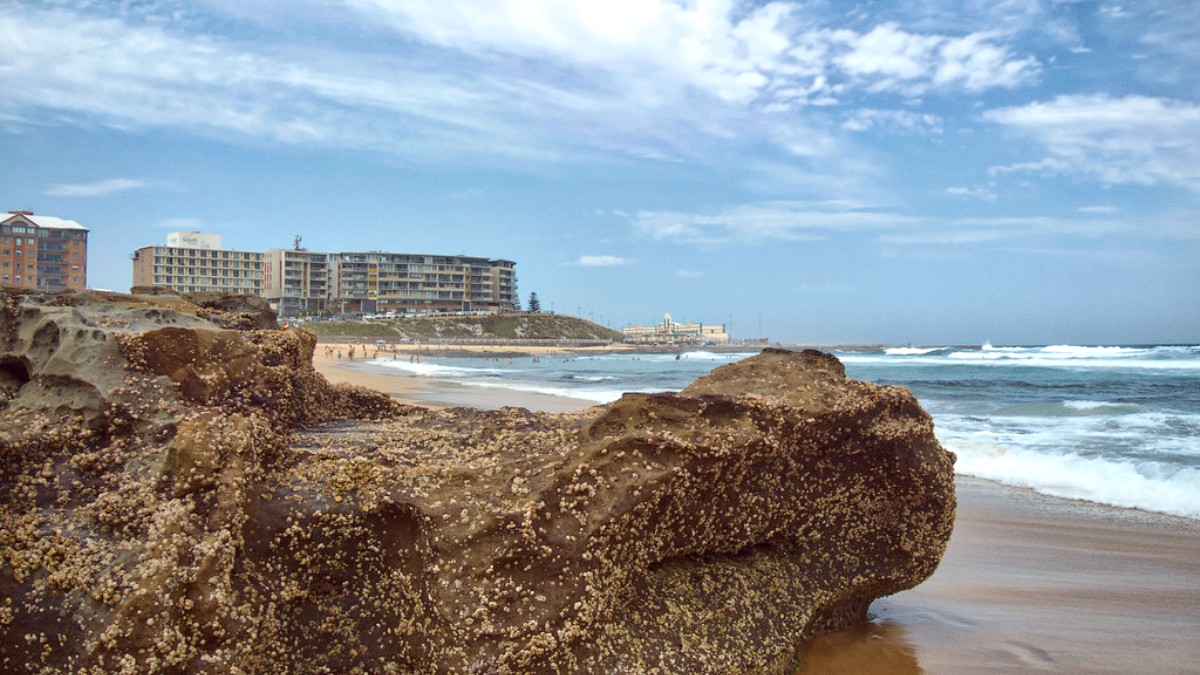
New South Wales, Australia
These months bring warm to hot conditions, with average daily maximum temperatures ranging from 26-28°C (79-82°F) and minimums from 18-20°C (64-68°F). Humidity is often high, which can make warmer days feel more intense. Rainfall can occur through afternoon thunderstorms, giving a temporary reprieve from the heat. Summer is ideal for beach activities and water sports, with ocean temperatures at their warmest.
Autumn offers some of the most pleasant weather. Average daily maximum temperatures are between 22-26°C (72-79°F), and minimums are 14-17°C (57-63°F). The humidity decreases, giving comfortable conditions for outdoor exploration. This period often features clear, sunny days, making it excellent for coastal walks and vineyard visits in the nearby Hunter Valley.
High Season (December - February) coincides with Australian summer school holidays, leading to peak tourism.
Low Season (June - August) corresponds to the mild Australian winter, with lower prices for flights and accommodation, and fewer tourists.
Important information
Risk increases during hot, dry periods in summer and early autumn; monitor local news.
Extreme heat can occur in summer; prioritize hydration and air-conditioned environments.
For activities
December to April for warmest ocean temperatures and sunny days.
May to November, with peak viewing from June to August.
Best seasons
March to May and September to November for comfortable temperatures.
Year-round, with spring (Sept-Nov) being pleasant for outdoor tastings.
The eVisitor (subclass 651) visa is for eligible passport holders from certain countries, mainly European Union citizens and those from the United Kingdom. It permits multiple visits of up to 3 months within a 12-month period. There is no application fee for the eVisitor visa. One applies online through the official Australian Department of Home Affairs website. Processing is often quick, but apply in advance.
When applying for a visa and upon arrival in Australia, several documents stand ready: A valid passport (generally for at least 6 months beyond the intended departure date), a visa grant notification (electronic, printed, and digital copies), and evidence of sufficient funds (bank statements, credit card limits). Onward or return travel tickets may be requested. An invitation letter or detailed itinerary can support the application. For Yellow Fever risk countries, a vaccination certificate is mandatory.
Available to eligible passport holders from countries like USA, Canada, Japan, allowing multiple visits of up to 3 months within 12 months. A service charge applies.
For all other nationalities not eligible for eVisitor or ETA, or for stays longer than 3 months. An application fee applies; apply well in advance.
Generally, at least 6 months beyond your intended departure from Australia.
Proof of adequate money to support your stay may be requested.
Evidence of plans to leave Australia (e.g., confirmed flight ticket) can be requested.
Australia, in general, presents itself as an expensive destination, but Newcastle often presents good value, especially when compared to Sydney.
The official currency is the Australian Dollar (AUD, A$, or $). It divides into 100 cents. Common denominations are $5, $10, $20, $50, and $100 notes, and 5c, 10c, 20c, 50c, $1, and $2 coins. ATMs are widely available throughout Newcastle. Most establishments accept major credit and debit cards (Visa, Mastercard, American Express). Contactless payment is standard.
This table gives an average daily cost for various traveler types, covering accommodation, meals, transportation, and activities. Prices vary based on season, specific choices, and booking lead times.
Australia maintains a high standard of medical care. Visitors typically pay upfront for services unless a reciprocal healthcare agreement applies. Travel insurance is highly recommended.
Newcastle is generally a safe city with a relatively low crime rate. Like any urban area, maintaining situational awareness is recommended.
General precautions: Secure belongings, avoid leaving valuables unattended, and be aware of surroundings, especially at night.
Nightlife areas: The CBD entertainment precinct can be busy late at night on weekends. Standard urban nightlife precautions apply.
Australia experiences very high UV levels. Wear broad-spectrum sunscreen, a wide-brimmed hat, sunglasses, and protective clothing. Seek shade during peak UV hours (10 am-3 pm).
Use SPF 30+ or higher, reapply every 2 hours, especially after swimming. LifeStraw offers water purification, though tap water is safe.
Avoid prolonged direct sun exposure during midday without protection to prevent burns.
Newcastle's beaches are beautiful but caution is advised. Always swim between the red and yellow flags on patrolled beaches, marking the safest areas with lifeguards.
Learn to react to rips: stay calm, float, raise an arm for help, or swim parallel to the shore. Adventure Medical Kits for first aid.
Do not swim alone or outside flagged areas, especially if unfamiliar with ocean conditions.
Newcastle maintains a safe environment. However, general precautions are still a good idea, as with any urban destination, notably for securing personal belongings.
Secure valuables, be aware of your surroundings, and avoid leaving items unattended. Pacsafe for anti-theft bags.
Do not display large amounts of cash or expensive electronics openly, notably in crowded areas.
| Service | Number | Notes |
|---|---|---|
| Emergency Services (Police, Fire, Ambulance) | 000 | Free call from any phone |
| NSW Health Information Line | 13 HEALTH (13 43 25 84) | Non-emergency medical advice |
| NSW Police Assistance Line | 131 444 | Non-emergency police matters |